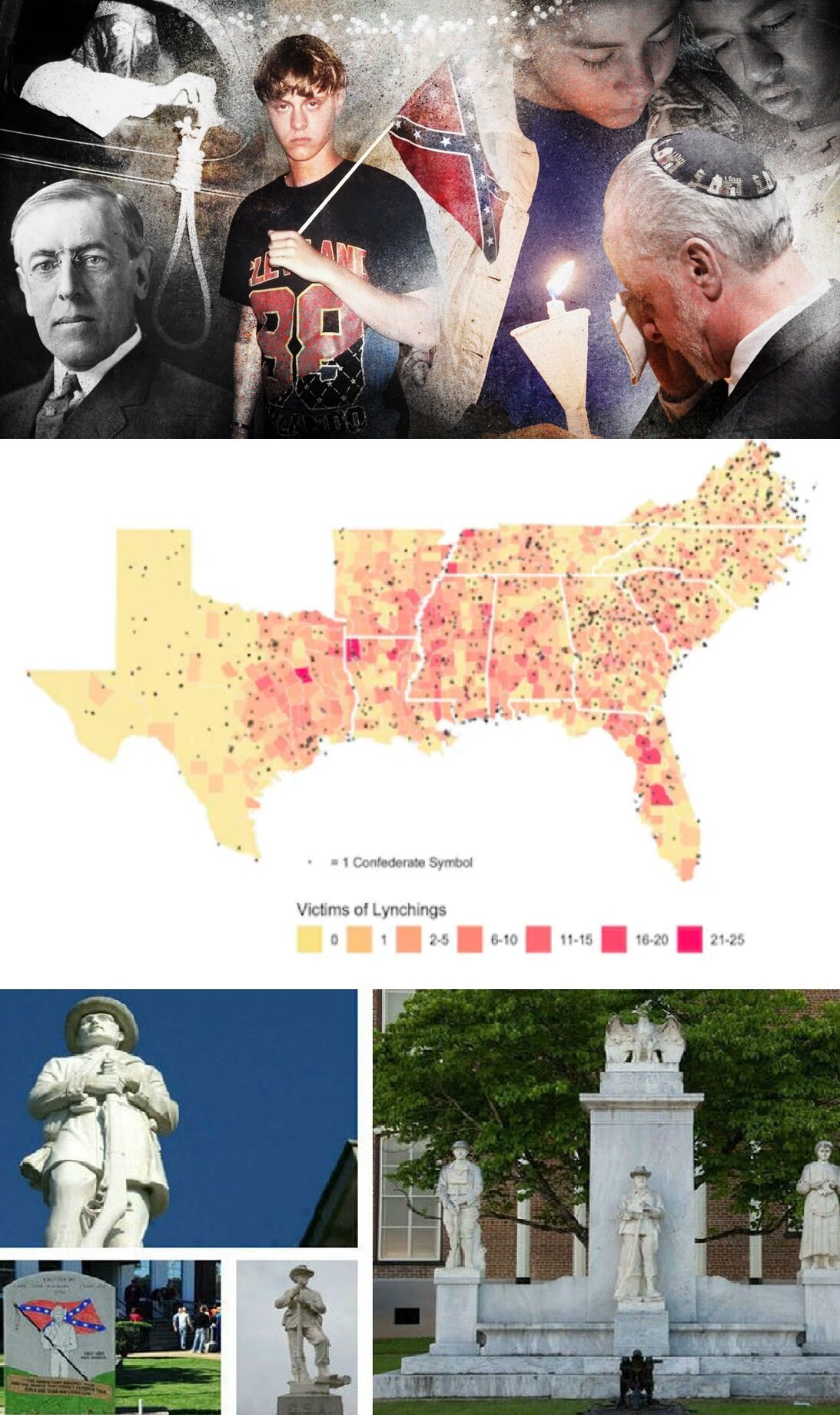Correlation Exists Between Lynching and Confederate Statues by US County
/Republish via AOC at FeedBurner CC 3.0 License Attribution Required: Daily Fashion Design Culture News
Large numbers of white southerners have long argued that Confederate monuments exist exclusively as symbols of southern pride and a proud history of rebellion against America’s federal government.
Led by United Daughters of the Confederacy, supporters of Confederate monuments refuse to acknowledge that there is any psychological damage to nonwhite people living their daily lives in the shadows of these relics to the days of slavery.
Former slave families should also celebrate the honor of the Old South, say white southerners while waving their Confederate flags in their faces. If people of color are bothered by these towering monuments of famed Confederate generals, they should praise God’s creation of an ideal society and way of life. Otherwise, people of color can hop the first boat back to Africa. Easy peasy.
A new study by researchers at the University of Virginia in Charlottesville challenges the noble premise of Confederate monuments.
Led by Kyshia Henderson of UVA’s Social Psychology Program, who worked with data scientist Samuel Powers and professors Sophie Trawalter, Michele Claibourn, and Jazmin Brown-Iannuzzi at the university’s Batten School of Leadership and Public Policy, the researchers documented a significant correlation between the numbers of Confederate monuments in an area and the number of documented lynchings from 1832 to 1950.
Published by the National Academy of Sciences, the researchers do not assert that the existence of Confederate monuments causes or provokes lynching. Their private beliefs — and those of the majority of researchers working in this area of study — do believe that Confederate statues are symbols of hate and also dominant power. But this study only concludes that there is a positive correlation between the two data sets: lynchings by county and Confederate statues by country.
“We can’t pinpoint exactly the cause and effect. But the association is clearly there,” Trawalter wrote. “At a minimum, the data suggests that localities with attitudes and intentions that led to lynchings also had attitudes and intentions associated with the construction of Confederate memorials.”
The researchers referenced another study associated with dedication speeches for Confederate memorials, finding that nearly half of the 30 dedication speeches reviewed involved “explicit racist language,” including phrases like “love of race” and “your own race and blood.”
